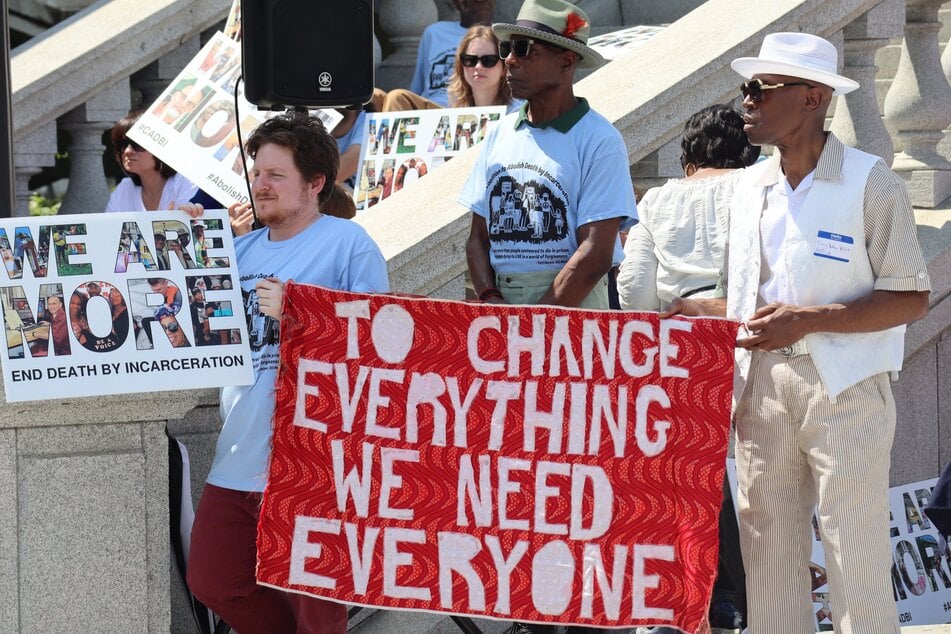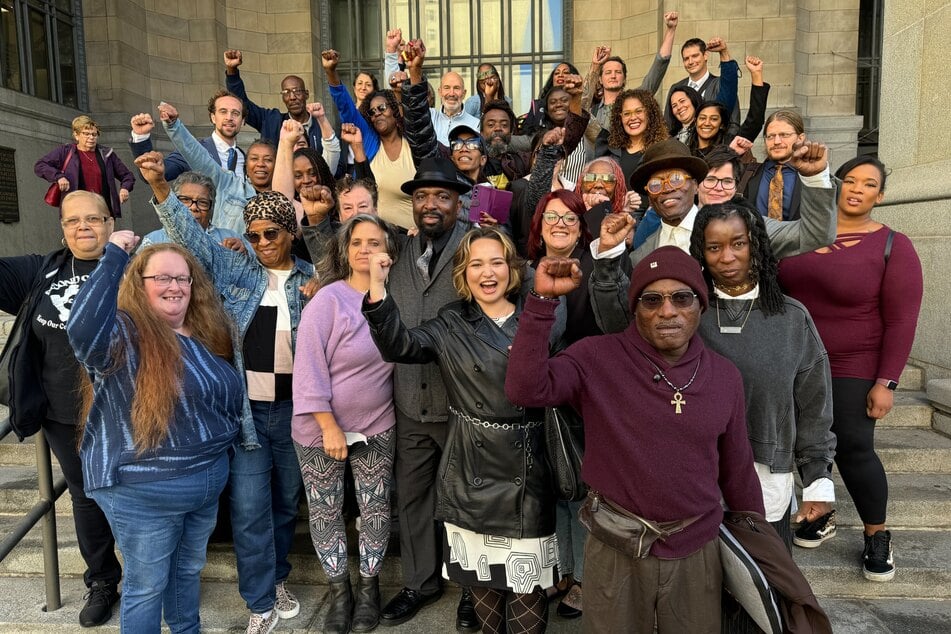Pennsylvania Supreme Court hears high-stakes case challenging death by incarceration sentences
Pittsburgh, Pennsylvania - More than 200 people packed the Pennsylvania Supreme Court on Tuesday as justices heard arguments in a landmark case challenging the constitutionality of sentences of life in prison without parole in felony murder convictions.

In the Commonwealth of Pennsylvania v. Derek Lee case, advocates argue that life in prison without parole (LWOP) sentences violate the Eighth Amendment to the US Constitution and state constitution's prohibition on "cruel punishments."
Lee was convicted of second-degree felony murder during a 2014 home robbery, even though he did not kill anyone. Prosecutors said he was upstairs when the victim, Leonard Butler, was fatally shot by an associate in the basement.
Lee is represented in the case by the Abolitionist Law Center, Amistad Law Project, and Center for Constitutional Rights.
Attorney Bret Grote of the Abolitionist Law Center argued in court that Lee's LWOP sentence, if unamended, will see him die in prison even though he did not take a life or intend to take a life.
"This must no longer be permitted under the Pennsylvania constitution," Grote insisted.
"We’re not arguing there should not be severe penalties for second-degree murder," he added. "Life with parole is a very serious penalty."
The fight to end death by incarceration

LWOP, often referred to as death by incarceration or "the other death penalty," disproportionately impacts Black Americans like Lee.
The United Nations Human Rights Committee last November urged the US to enact a national moratorium on this inhumane sentencing practice, which advocates say does not serve any rehabilitative purpose.
Pennsylvania, where LWOP is the mandatory minimum sentence for participation in a felony murder, is especially extreme. Around 5,200 people in the state are locked up on death by incarceration sentences, accounting for 10% of the national total, the Center for Constitutional Rights notes.
The Pennsylvania Supreme Court agreed last February to hear an appeal in Lee's case, which has garnered support from formerly incarcerated individuals, major civil rights organizations, and United Nations experts.
"It is not taken lightly, the impact these crimes have made in the lives of those who've had to live with the reality that someone they love is no longer with them," Lee said in a statement shared by the Center for Constitutional Rights on Tuesday. "It is because of these remorseful burdens that many of us have committed our lives, and the time that we're serving, to transforming ourselves and becoming a better person each day."
"It is my prayer that this court not only see's the constitutional issues before them, but also, they recognize that among the men and women incarcerated right now in Pennsylvania are people who have value, and have something significant to contribute to our families, communities and our society at large. God bless."
A positive decision in Lee's case could provide hope to more than 1,100 people incarcerated on LWOP sentences for felony murder in Pennsylvania, around 70% of whom are Black.
Cover photo: Screenshot/X/Abolitionist Law Center